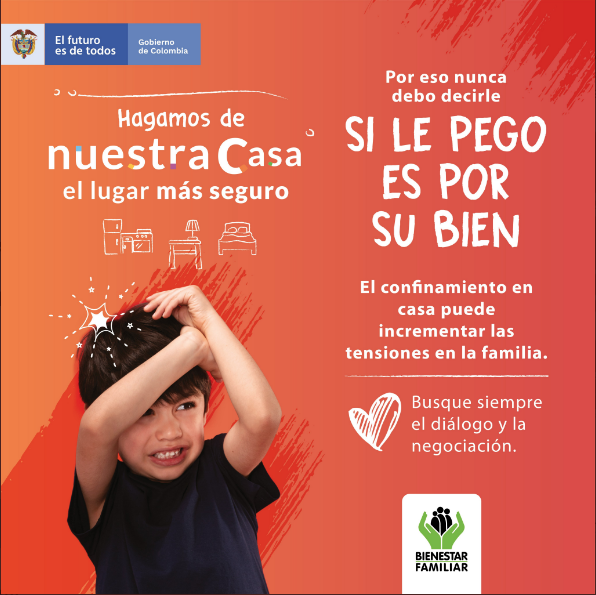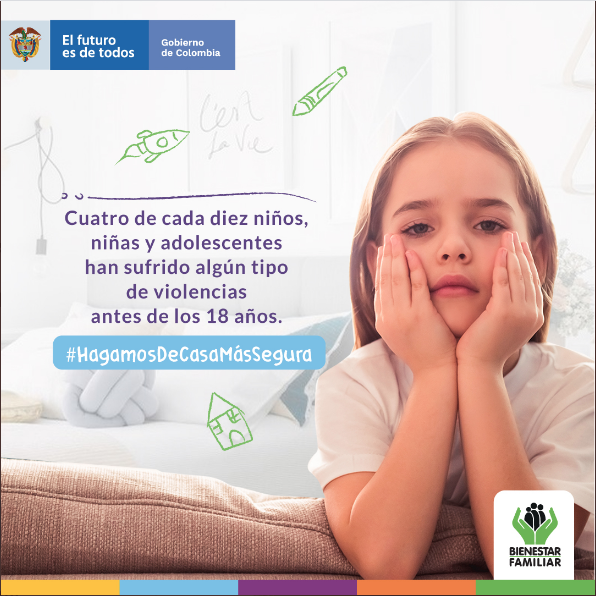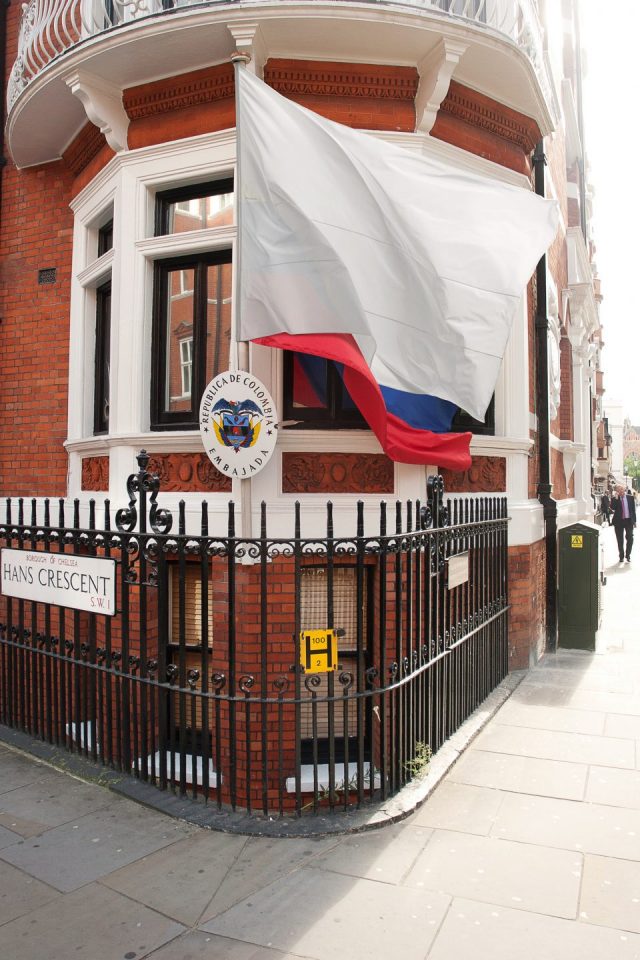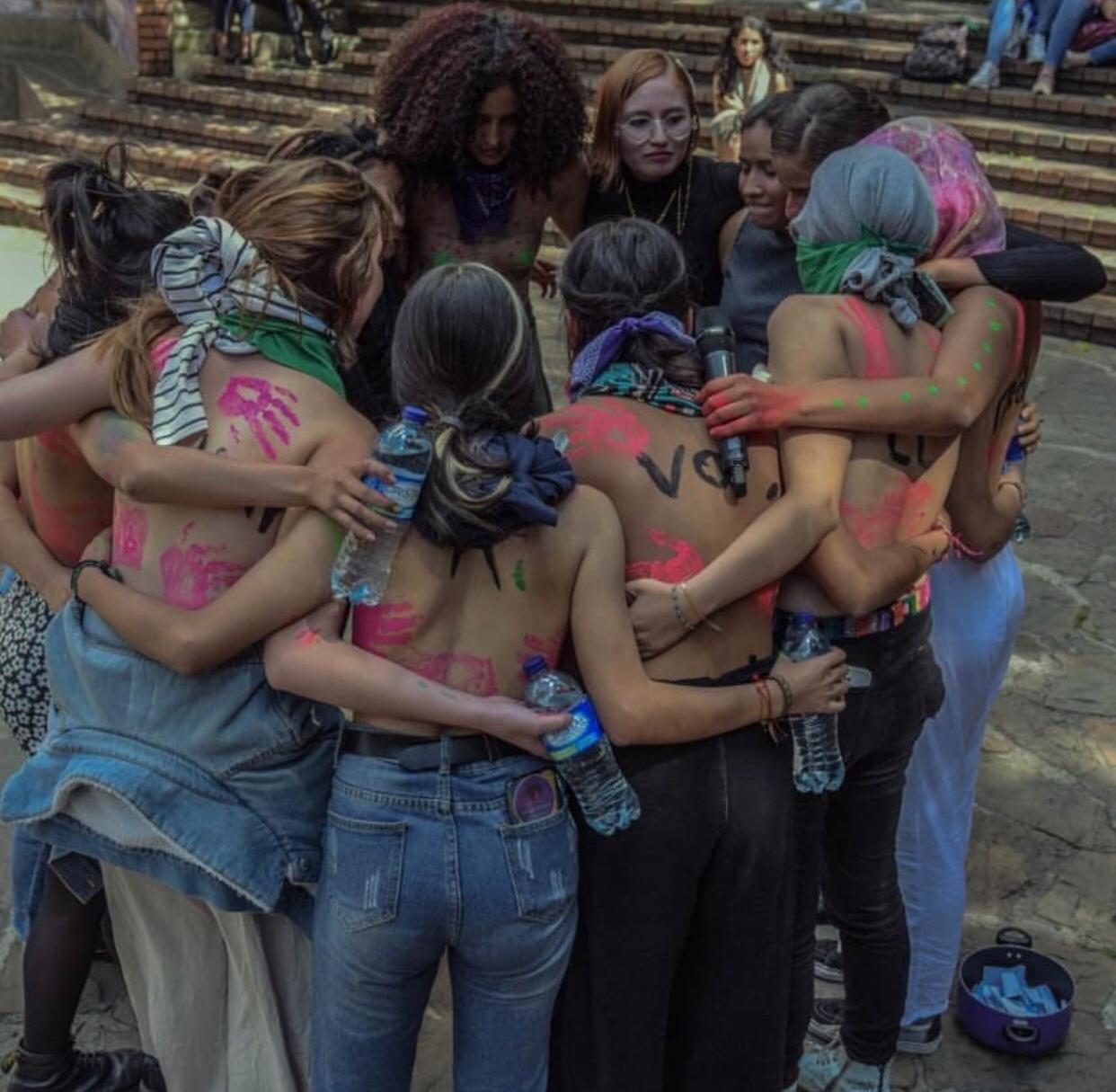As tensions and challenges from the nationwide quarantine increase, the usual channels that might pick up on abuse are not working.

“I know that I am restless. I know that sometimes I cry just because. I ask you to be patient with me, I am getting to know myself. Guide me, accompany me, don’t shout at me, and please don’t hit me.”
These words introduce the Colombian Family Welfare Institute’s (ICBF) poignant plea to parents and caretakers, urging them not to take their lockdown frustrations out on their children. Their campaign ‘Let’s make home safer’ #HagamosDeCasaMásSegura, was launched on April 8 to prevent violence against infants, children, and adolescents while families are quarantined together.

Concerned by the challenges this global pandemic poses to the home sphere, the campaign promotes telephone and WhatsApp lines to report instances of familial violence. In addition to responding to child abuse cases, it seeks to prevent harm from happening in the first place: an online platform Mis Manos te Enseñan (My hands teach you) is filled with engaging activities for families with children and adolescents. Just one month after the platform’s launch, the interactive site has received more than 410,000 visits.
Being in lockdown is stressful. Millions of families are confined to their living quarters and struggling to keep food on the table, which magnifies familial tensions. The Colombian Society of Paediatricians explained that, even before the pandemic, the unemployment rate was 13% in January and 46.5% of Colombian’s economy was informal. They concluded that over half of all families could be without an income right now. In addition to the obvious risks of malnutrition and eviction, children and their caretakers are prone to anxiety, depression, and other mental health conditions, as families are trapped in cramped living quarters.
Read our latest coverage on the coronavirus in Colombia
“In these conditions, there is a higher risk of interfamily violence, maltreatment toward children and adolescents, and sexual abuse,” it reports.
The ICBF has highlighted another issue: A sharp fall in reporting. Between March 12 and April 4, the ICBF received 9,893 requests and reports associated with violence; in the same period last year, the number was 15,024. This may seem promising, but authorities suspect that large numbers of cases are going unreported because the usual channels that might spot the signs of abuse are currently closed.
Lina Arbalaéz, director of the ICBF, told Caracol TV that the quarantine has impeded efforts to report violence against children and young people. For her, the fall in the number of cases “sets off alarms.” She points out that “The institutions – schools, nurseries, and playgroups – which would wave the flag when a child begins to show symptoms are closed. That’s likely the reason that the number of cases is decreasing right now.”
Four in ten young people have suffered domestic violence
Last year, Colombia’s Ministry of Health released the first-ever extensive survey of violence against children and young people in the country. The results were shocking: Over 40% of children in Colombia have been victims of domestic violence before the age of 18.
That breaks down to 15% of girls who revealed they had been victims of sexual violence and 27% of physical violence. For boys, the figures were slightly different: 8% reported suffering sexual violence and 38% physical. Seventy per cent of the time, the first incident of sexual violence took place either in the victim’s or perpetrator’s home.
Beyond statistics, the report highlighted a “culture of silence and shame” that prevents many family members from coming forward about domestic abuse. It emphasised that is especially notable among cases of sexual violence affecting children.

“Social norms purport the belief that violence against children in the home is a private affair, that physical violence is an acceptable means to discipline and educate children, and that children are expected to submit to the will of their parents, teachers, religious leaders, and other elders and authority figures.”
The practical outcomes of these pervasive cultural norms are that law enforcement authorities will often choose not to intervene in cases of domestic violence, and children are reluctant to denounce the people who take care of them. During a mandated quarantine, family members that might report cases of violence are deprived of privacy from their abusers, and cannot always reach authorities without endangering themselves.
The long-term consequences of child abuse or domestic violence against youth and children are manifold: non-communicable diseases (diabetes, cardiovascular disease), communicable diseases (STIs, HIV), mental health problems (anxiety, depression), and behaviours that increase risk of health issues (substance abuse, unprotected sex).
Domestic violence: The ‘shadow pandemic‘
In contrast, the benefits of positive familial relationships are similarly resounding. That’s why the ICBF is encouraging families to view the challenges of the quarantine as an opportunity to grow closer and has created virtual tools to help parents who may not have time to entertain and teach their children throughout the day.
Interfamilial violence is difficult to resolve, even outside of quarantine. But the fact that it is being more openly discussed – and measured – is a step in the right direction.
If you or someone you know has been the victim of domestic abuse, whether as a child or adult, support is available. Call 141 or report via WhatsApp 320 2391320





